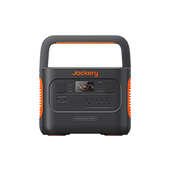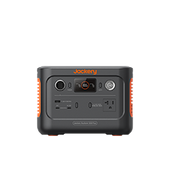How to Prepare for a Hurricane at Home
With hurricane season in full swing, it is critical to know how to keep yourself and your family safe amid these massive storms. Like many natural disasters, hurricanes can and often do disrupt daily life for hours, days, weeks, and occasionally months. Knowing what a hurricane is and having a plan with supplies can make a hurricane-caused power outage feel like little more than an at-home camping trip.
What Exactly Is A Hurricane?
In the Americas, a hurricane is when a cyclone forms in the ocean (usually the Atlantic) and has winds of over 74 miles (119 kilometers) per hour. The hurricane will have continually strong winds, intense rain, and can create tornadoes along with a potential storm surge (a wave of water ahead of the storm that is pushed by the wind).
While some natural disasters occur with little or no warning, that is not the case with a hurricane. There are often at least a few days to over a week of warning before the hurricane makes landfall. This advance notice allows individuals, families, and governments to prepare. Hurricanes are monitored by the National Hurricane Center.
While some natural disasters occur with little or no warning, that is not the case with a hurricane. There are often at least a few days to over a week of warning before the hurricane makes landfall. This advance notice allows individuals, families, and governments to prepare. Hurricanes are monitored by the National Hurricane Center.
Due to the impact a powerful hurricane can have, advanced preparation is essential to ride out the storm if there isn’t an evacuation order. Hurricanes can span hundreds of miles and an evacuation may be ordered if it is sufficiently dangerous. It is therefore key to have supplies both present in your home as well as packed up to go if directed to leave by the local authorities.
When Is Hurricane Season?
Hurricane season is from June to November in the Atlantic ocean, and typhoon season is around the same time in the Pacific ocean. The first storm of the 2021 season was recently named Elsa, it was the earliest storm to form with a name beginning with ‘E’.
Where Do Hurricanes Hit?
Hurricanes primarily affect the Caribbean islands, the southeast and the eastern seaboard of the United States. As they make landfall hurricanes weaken but can still be strong storms that affect states not on the coast.
The states primarily affected by hurricanes include;
- Florida
- Texas
- Louisiana
- North Carolina
- South Carolina

How Are Hurricanes Rated?
As they form, Hurricanes usually strengthen over the time they are over the ocean. They are categorized on a scale of 1 to 5. A Category 1 hurricane is classified as the least severe, 5 being the most. This scale is based on wind speed. It is worth noting that hurricanes can strengthen rapidly. A category 1 can strengthen to a category 3 or 4 within days.

How Are Hurricanes Named?
Hurricanes are first named when they initially form as a tropical storm; having winds of over 39 miles per hour (63km/hr). Once they strengthen to over 74 miles per hour (119km/hr) winds, the storm is designated as a hurricane. Tropical storms and hurricanes are named by the World Meteorological Organization which has a list of names that are rotated every six years.
Are Hurricanes Dangerous?
Hurricanes are dangerous weather patterns that can cause injury and, in many cases, death. Some hazards of a hurricane include drowning and being struck by flying debris. The secondary effects such as power and water failure can also lead to additional deaths in some cases.
It is important to know that hurricanes can cause severe damage to infrastructure and people. The destruction of power lines, storm surges that can flood large areas; all of these hazards will disrupt life for some time.
What Was The Deadliest Hurricane?
Hurricane Galveston was the deadliest hurricane to make landfall in the United States in 1900. It was a category 4 and claimed at least 8,000 lives. In recent years, the deadliest hurricane was Hurricane Maria in 2017, a category 5 storm that caused catastrophic damage to the Caribbean islands.
Can Hurricanes Be Stopped?
Unlike other natural disasters such as a wildfire or flood, there is no man-made way to stop a hurricane. However, sea walls can help mitigate a storm surge. Hurricanes are massive cyclones that cover a large area; the only way to protect against them is to make sure your home is secure or get to a safe location inland.
Difference Between a Hurricane/Typhoon
Despite being called different things, a hurricane and typhoon are the same weather pattern. It just depends on which ocean they formed. A hurricane is generally a cyclone that forms off the western coast of Africa in the Atlantic Ocean and spins clockwise. A typhoon is a cyclone that forms (usually) near Asia and in the Pacific Ocean and spins counter-clockwise. Typhoons are usually stronger due to the warmer water. Hurricane and typhoon season occur around the same months of the year.

What To Do Before The Hurricane Makes Landfall?
It is important to be prepared before the hurricane hits. Stores will likely be empty as those who didn’t stock up try to get supplies at the last minute.
Essential Supplies
- A week’s worth of food, water, medications, first aid, and essential documents.
- Spare food and items for any pets.
- Power is almost always cut off for a time, so having backup power to charge phones, radios, and light sources is essential. A small and portable Jackery power system such as an Explorer 240, Explorer 300, or Explorer 500 can keep phones and lights charged in case of an emergency.
- Have these items all in a safe, secure location. In many instances power will shut off for a period of time, so having a solar charger/generator ensures your phones, radios, and batteries can remain charged.
For a full list of items and actions to take for hurricane preparedness, consult the linked FEMA document (Federal Emergency Management Agency). This offers a more in-depth preparedness checklist including what to do before, during, and after a hurricane.
What To Do When The Hurricane Hits?
A hurricane will bring strong winds, heavy rain, and possibly a storm surge as it nears land. Some basic steps to take as the hurricane makes landfall are;
- Have ways to constantly monitor the storm’s progress through phone, radio, or various web sources.
- Make sure all windows to your home are closed and boarded up. Hurricane Windows can also protect the glass against flying debris.
- Have essential supplies such as food, water, medications, and other essentials packed into bags if an evacuation is necessary. Ensure that your Jackery power station is plugged in and charged for on-the-go power availability if/when the power shuts off.
- Listen to government broadcasts. If an evacuation is ordered, such information will be available on either local television stations, radio stations, or online sources.
- Be aware that if you are evacuating and are sent to a shelter, they may not have additional power to charge phones, lights, and radios. Having a personal power source can give you peace of mind.
- If you go to an emergency storm shelter, they will likely not allow pets. Please plan for pets accordingly.
- Do not assume you can always ‘ride it out.’ Hurricanes and the accompanying storm surge can destroy homes and buildings. Heed government instructions if they ask you to leave. Refusing or ignoring an evacuation order needlessly puts emergency responders at risk if you need help later.
What To Do After A Hurricane?
Being self-sufficient is the way to remain safe after a disaster. This means staying safe at your evacuation location or your home (if an evacuation wasn’t ordered).
After a strong hurricane, basic utilities will likely not be functioning. This includes having power or running water. If you see downed power lines, stay away from them! Even if they are not actively sparking, the lines may still have a dangerous charge. Tune in to your local news to monitor recovery efforts.
Since power will likely be out following a hurricane, having a Jackery system charged and ready to deploy is key to keep rechargeable batteries for lights and phones fully charged. Due to the station’s ability to charge from solar or a backup generator, this allows you and your family to stay connected with both official broadcasts and friends as the community recovers.
Disclaimer:
The runtime mentioned for appliances powered by Jackery is for reference only. Actual runtime may vary under different conditions. Please refer to real-world performance for accurate results.














































































































Leave a comment